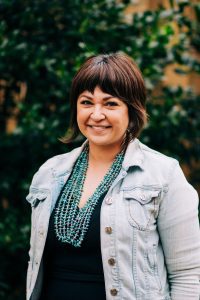 For Native schools, sovereignty in education – the power or authority to govern or self-rule – is critical to their success. How does TEDNA support sovereignty in education for Native schools?
For Native schools, sovereignty in education – the power or authority to govern or self-rule – is critical to their success. How does TEDNA support sovereignty in education for Native schools?
Tribal Education Department’s National Assembly (TEDNA) is a Native-run 501(c)(3) working to assemble and represent Indigenous sovereign nations’ departments of education. In addition to advocating for inclusive law and policies, TEDNA seeks to support and encourage each tribe or nation’s right to define and reach its own education goals with respect to their distinct identity. TEDNA accomplishes this by fostering effective relationships with Tribes, federal and state government agencies, local education agencies, and other organizations serving Native communities. Currently, the educational issues posing major concern to Native American students range from providing locally-informed and inclusive history/social studies curricula, access to electronic resources and reliable internet needed for learning, and multiple barriers blocking access to educational choice and opportunities.
Given the current state of education, how has TEDNA evolved to meet the educational needs of Native students?
A major point made during ACT’s Center for Equity in Learning recent #COVIDEquityChat was that students already have a plan and know what they want for their future, but lack access to resources and opportunities. This is the same feedback TEDNA received from Native communities and it was used to create TEDNA’s Accessing Choices in Education Project (TEDNA ACE). In short, every year, over the next five years, TEDNA ACE will provide more than 1,200 Native American high school students and their families with a menu of options to prepare for their future plans. These options include dual enrollment; career and technical education; workforce readiness and other certifications; internships and experiential learning; as well as college planning and preparation. The TEDNA ACE Project will empower Native students by connecting them with organizations and resources — already in place — to accommodate their future plans and, most importantly, their timelines.
How can schools support sovereignty in education?
“Tribes were not historically waiting on the shores for foreigners to bring us education; tribes have always had some form of an education system,” said Quinton Roman Nose, current and founding executive director of TEDNA. Do not undervalue the power of communicating with your local tribal education department — ultimately, the key to success with Native students and their families, is communication. Schools must create policies that include the exceptional cultural, historical, and political aspects of their Native students, families, and faculty, and this must be communicated in a way that creates a culture of inclusion for Native students. For example, what’s your local school’s policy on wearing traditional regalia at a graduation ceremony? Data from a recent study by IllumiNative shows that 72 percent of people polled believe it’s necessary to make significant changes to school curricula on Native American history and culture, though, most educators report having little to no training on local Native and Tribal culture/history and are not confident in their ability to create appropriate and inclusive learning exercises. Communication between schools and Tribes would allow for locally-informed professional development for everyone interacting with Native students and families. We need to create school environments where Native students feel safe to fully participate in academics, athletics, talented and gifted, arts, and government, with plenty of opportunities to express their leadership. Is there a Native student group at your school? Is there policy in place to support the development of a Native student group? If not, now is the perfect time to rewrite that policy and make it inclusive for Native students and all underrepresented individuals.
Jaimie Gua is an enrolled Colville Tribal Member, a 2012 Teach for America alum, an award-winning educator, public speaker, policy writer, and grant writer having co-authored the grant for the Sovereign Community School — Oklahoma’s first public charter school centered on serving the needs of Native students living in Oklahoma City.
